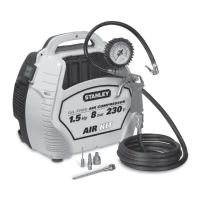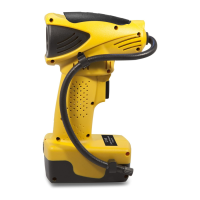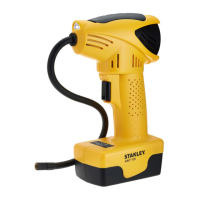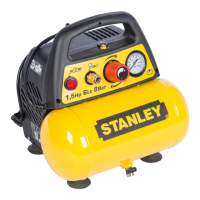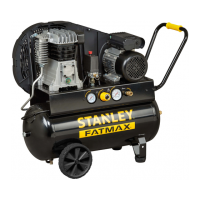SPECIFIC SAFETY INSTRUCTIONS
Warning! Do not use the air compressor in areas where there is a risk
of explosion or fire from combustible materials. The sparks generated
from certain tools attached to air compressor can ignite combustible
materials as well as flammable liquids, paint, varnish, petrol,
flammable gases and dust of an explosive nature. As a precaution it is
recommended that you consult an expert on a suitable fire extinguisher
and its use.
• Initially remove the transport plug and replace with the oil
breather BEFORE using the first time, see page 10.
• Do not attempt to modify the air compressor, guards or the
supplied accessories in any way.
• Domestic air compressors are designed for intermittent
operation. Ideally a 75% duty cycle. (Meaning. 45 seconds
ON motor pumping and 15 seconds OFF, motor not pumping).
When the motor is pumping the attached air tool can not be
used. Only use the attached air tool while the compressor is
not pumping.
• Stop using the attached tool as soon as the air compressor
starts pumping.
• Always check the oil level before use. The oil level should be
above the red dot on the sight glass.
• Fully assemble compressor before use.
• Always ensure your compressor is level and stable. Using your
compressor on unlevel or unstable ground may cause a lack of
lubrication and the pump to seize, this damage will not be covered
under warranty.
• Never run this compressor without the wheels and/or rubber
stopper (s) being correctly fitted.
• Never use an extension cord with this compressor always use
a longer air hose.
• Never connect to a generator which does not produce sufficient
power, at least 3500W and has pure sine wave power output.
• This air compressor has a maximum operating pressure of
10BAR (145PSI). Always regulate the outlet pressure to match
your air tools operating pressure noted in your air tools
instructions
• Domestic air compressors are not designed for industrial / commercial
applications.
• Domestic air compressors are not designed for continuous running.
• Avoid touching the pump area as it can become very hot and may
burn.
• Ensure that the air compressor is disconnected from the mains supply
when not in use, before servicing, lubricating, making changes and
when changing attachments such as air hoses / tools.
• Always use the correct type of tool for the operation to be carried out.
• Never use the air compressor if any part of the unit is damaged. Always
have the air compressor serviced by an authorised service agent.
• Always wear safety eye, ear and respiratory protection when operating
the air compressor.
• Allow the tank to completely fill before using the air compressor.
• If the air compressor makes an unfamiliar sound or vibrates
excessively, switch the air compressor ‘OFF’ immediately and
disconnect from the mains power supply. Investigate the possible
cause or consult your authorised service facility.
• Always move the air compressor using the handle and wheels.
• Always use the air compressor on stable ground.
• This air compressor is designed to compress normal air. Never use to
compress any other type (s) of gases.
• Never direct the jet of air or other liquids / gases towards your body,
other persons or animals.
• Never direct the jet of air or other liquids / gases towards this air
compressor.
• This air compressor is not suitable for pharmaceutical, food or sanitary
purposes.
• This air compressor is not to be used to for filling scuba or oxygen air
bottles or tanks.
• Always follow the instructions relating to the tools attached to this air
compressor.
ELECTRICAL DATA
IMPORTANT
This air compressor is fitted with a sealed electrical connection plug that is compatible with the mains power supply for Australia / New Zealand
and meets the requirements of Australian Standards. This air compressor must be connected to a supply voltage that is equal to that stated
on the rating label. If the mains power connection plug or power cord becomes damaged it must be replaced with a complete assembly that is
identical to the original, and this must be replaced by an authorised service centre. Always follow the Australian / New Zealand requirements for
connection to the mains supply. If in doubt always consult a qualified electrician.
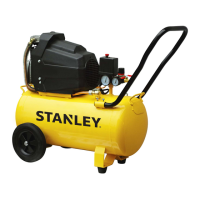
